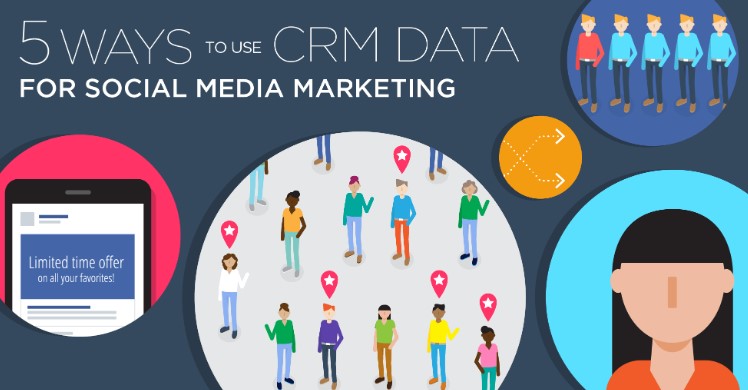In today’s digital age, social media has become an essential part of customer engagement and relationship management. By leveraging online platforms like Facebook, Twitter, and Instagram, businesses can connect with their customers and provide a personalized experience that drives growth and increases loyalty. In this article, we will explore how businesses can use social media to enhance their CRM strategy and provide valuable insights into customer behavior and preferences.
1. Connect with Customers
Social media provides businesses with a platform to connect with their customers and engage in real-time conversations. By responding to customer inquiries, comments, and feedback, businesses can provide a personalized experience that increases customer satisfaction and loyalty. It’s important to be responsive, timely, and professional in all social media interactions to create a positive customer experience.
2. Gather Customer Feedback
Social media provides businesses with a valuable source of customer feedback. By monitoring social media channels for customer comments and feedback, businesses can identify areas for improvement and adjust their strategy accordingly. It’s important to respond to all customer feedback, whether positive or negative, to show that you value their input and are committed to improving their experience.
3. Provide Personalized Solutions
Social media enables businesses to provide personalized solutions that meet the customer’s specific needs and challenges. By using data analytics tools to analyze customer behavior and preferences on social media, businesses can provide personalized product recommendations, marketing campaigns, and promotions. This creates a positive customer experience and increases the likelihood of repeat business and referrals.
4. Improve Customer Service
Social media provides businesses with a platform to provide improved customer service. By responding to customer inquiries and complaints in real-time on social media, businesses can create a positive customer experience and increase customer satisfaction and loyalty. It’s important to be professional, empathetic, and timely in all social media interactions to create a positive customer experience.
5. Measure Success
To ensure that your social media CRM strategy is effective, it’s important to regularly measure and analyze success metrics like customer engagement, customer satisfaction, and sales growth. By using a CRM tool to track and analyze these metrics, businesses can identify areas for improvement and adjust their strategy accordingly.
Here are some best practices for implementing a successful social media CRM strategy:
- Choose social media platforms that are relevant to your industry and target audience.
- Create a content strategy that aligns with your business goals and customer preferences.
- Respond to all customer inquiries, comments, and feedback in a timely and professional manner.
- Use data analytics tools to analyze customer behavior and preferences on social media.
- Regularly measure and analyze success metrics to identify areas for improvement.
In conclusion, leveraging online platforms like social media can enhance your CRM strategy and provide valuable insights into customer behavior and preferences. By following best practices like connecting with customers, gathering feedback, providing personalized solutions, improving customer service, and measuring success, businesses can create a successful social media CRM strategy that drives growth and increases loyalty.
Here are some FAQs related to leveraging online platforms for customer engagement:
-
What are some popular social media platforms for customer engagement?
Some popular social media platforms for customer engagement include Facebook, Twitter, Instagram, LinkedIn, and YouTube. It’s important to choose platforms that are relevant to your industry and target audience.
-
How can businesses measure success on social media?
Businesses can measure success on social media by tracking metrics like customer engagement, customer satisfaction, and sales growth. By using a CRM tool to track and analyze these metrics, businesses can identify areas for improvement and adjust their strategy accordingly.
-
What are the benefits of using social media for customer engagement?
Using social media for customer engagement provides businesses with a platform to connect with their customers, gather feedback, provide personalized solutions, improve customer service, and measure success. It enables businesses to create a positive customer experience and increase customer satisfaction and loyalty.
-
How can businesses provide a personalized experience on social media?
Businesses can provide a personalized experience on social media by using data analytics tools to analyze customer behavior and preferences. This enables them to provide personalized product recommendations, marketing campaigns, and promotions that meet the customer’s specific needs and challenges.
-
How can businesses ensure that their social media CRM strategy is effective?
To ensure that their social media CRM strategy is effective, businesses should regularly measure and analyze success metrics like customer engagement, customer satisfaction, and sales growth. They should also respond to all customer inquiries and feedback in a timely and professional manner, and use data analytics tools to analyze customer behavior and preferences.
In conclusion, leveraging online platforms like social media can enhance a business’s CRM strategy and provide valuable insights into customer behavior and preferences. By following best practices like connecting with customers, gathering feedback, providing personalized solutions, improving customer service, and measuring success, businesses can create a successful social media CRM strategy that drives growth and increases loyalty.
